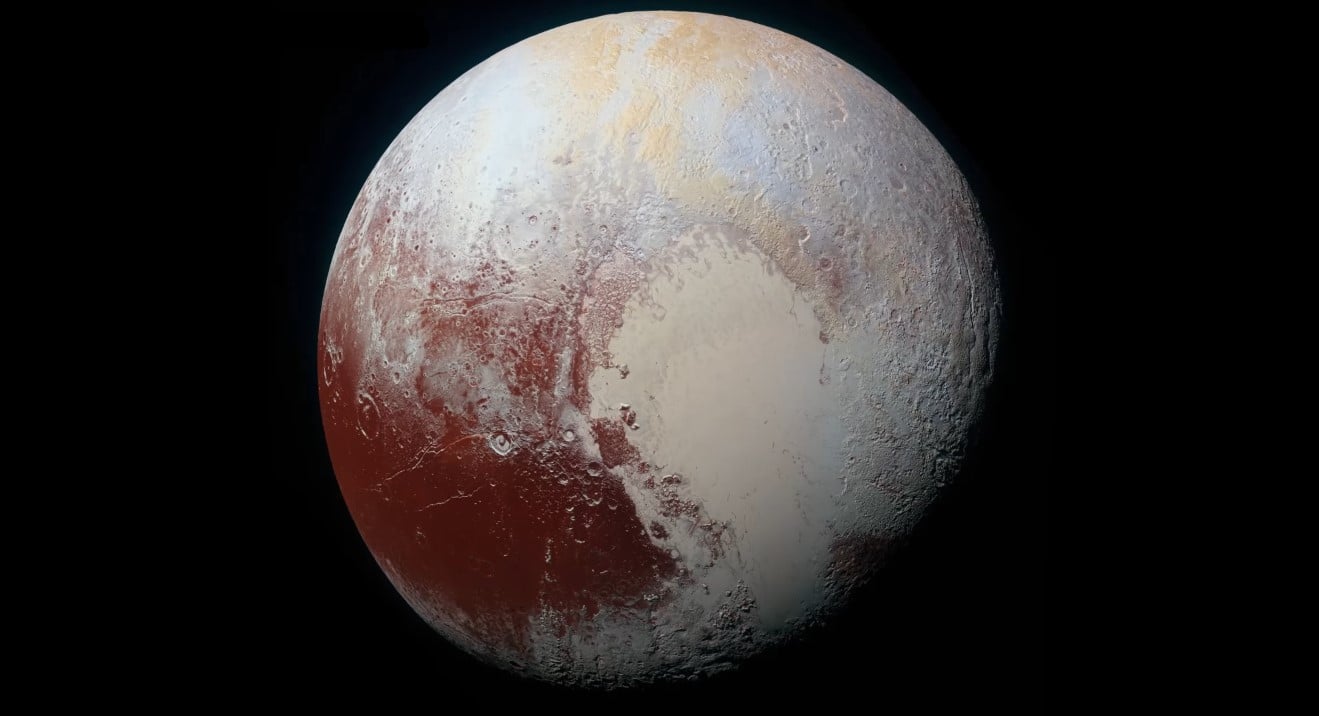A study earlier this month suggested that Pluto may be losing its atmosphere. However, recent research suggests there are liquid oceans on Pluto which are protected from freezing by a layer of gas insulation. If this process also happens on other distant celestial objects, there may be more oceans in the universe than previously thought.
Researchers developed computer simulations to prove the existence of oceans in liquid form on the dwarf planet Pluto. They published their findings in the journal Nature Geoscience. They believe a layer of gas hydrates are protecting a subsurface ocean from freezing.
NASA’s New Horizons spacecraft, which visited the distant body in 2015, provided the first close-up images of the dwarf planet and its satellites. At the time, it was discovered that Pluto has a strange topography with a white ellipsoidal basin called Sputnik Planatia. The basin is close to the equator and is about the size of Texas.
Researchers at Japan’s Hokkaido University, the Tokyo Institute of Technology, Tokushima University, Osaka University, Kobe University, and the University of California, Santa Cruz, decided to explore what kept the liquid oceans on Pluto from freezing. They hypothesized that an insulating gas layer lies beneath the icy surface of Sputnik Planitia. Gas hydrates are crystalline solids made of gas trapped in molecular water cages. Because they are highly viscous, they are not good thermal conductors and thus could act like insulation.
Simulations were designed to find evidence of gas insulation going back 4.6 billion years ago, which scientists believe to be the earliest days of the solar system. The simulations reveal the evolution of Pluto’s interior while also determining the amount of time required for its subsurface ocean to freeze and generate a thick, icy shell. Researchers ran simulations with two scenarios. In one, a gas insulation layer existed between the ocean and the icy shell, and in the other scenario, it didn’t.
The researchers say their simulations suggest that if there is no gas hydrate insulating layer, the liquid oceans on Pluto would have been completely frozen hundreds of millions of years ago. However, if there is, then the subsurface ocean would hardly be frozen at all. Researchers believe one of the insulating gases is methane from the planet’s rocky core. This theory could also explain the strange composition of Pluto’s atmosphere, which is methane-poor while being rich in nitrogen.
They say hydrate insulating layers could also be protecting subsurface oceans on other large, icy moons and celestial objects.
“This could mean there are more oceans in the universe than previously thought, making the existence of extraterrestrial life more plausible,” lead researcher Shunichi Kamata of Hokkaido University said in a statement.





